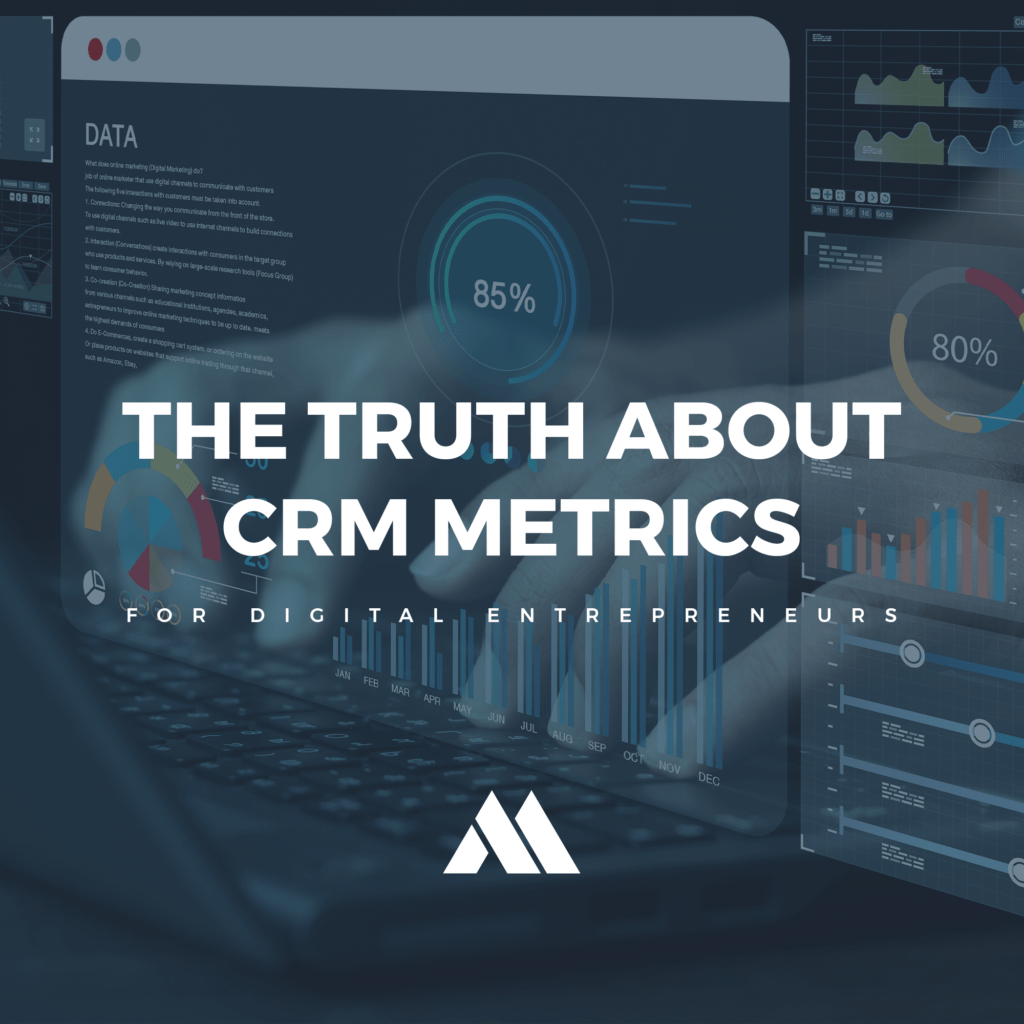
In the dynamic realm of digital entrepreneurship, the strategic use of customer relationship management (CRM) metrics has emerged as a cornerstone for success. In an era defined by rapid technological advancements and shifting consumer behaviors, understanding the nuances of CRM metrics is imperative for entrepreneurs looking to navigate the complexities of the digital landscape effectively. This comprehensive guide aims to delve deep into the world of CRM metrics, providing digital entrepreneurs with the knowledge and insights they need to thrive in today’s competitive market.
Introduction: The Role of CRM Metrics in Digital Entrepreneurship
In the digital age, where customer expectations are constantly evolving, businesses must prioritize building and maintaining strong relationships with their customers. CRM metrics serve as invaluable tools for achieving this goal, offering insights into customer behavior, preferences, and satisfaction levels. By leveraging CRM metrics effectively, entrepreneurs can make data-driven decisions, optimize their marketing strategies, and enhance customer experiences, ultimately driving sustainable growth and success.
Understanding CRM Metrics: A Deep Dive
- Customer Acquisition Cost (CAC): CAC is a fundamental metric that calculates the total cost incurred to acquire a new customer. It encompasses various expenses, including marketing, advertising, and sales efforts. By understanding CAC, entrepreneurs can assess the effectiveness of their customer acquisition strategies and allocate resources efficiently to maximize returns.
- Customer Lifetime Value (CLV): CLV measures the total revenue generated by a customer over their entire relationship with a business. This metric provides valuable insights into the long-term profitability of customers and helps entrepreneurs prioritize efforts to retain high-value customers and maximize lifetime value.
- Churn Rate: Churn rate quantifies the percentage of customers who discontinue their relationship with a business over a specific period. High churn rates can signal underlying issues with product quality, customer service, or competitive pressures. By monitoring churn rate closely, entrepreneurs can implement targeted retention strategies to reduce churn and improve customer loyalty.
- Conversion Rate: Conversion rate measures the percentage of website visitors or leads that take a desired action, such as making a purchase or signing up for a newsletter. This metric is crucial for evaluating the effectiveness of marketing campaigns and optimizing conversion funnels to drive more conversions and revenue.
- Customer Satisfaction (CSAT) Score: CSAT provides insights into the overall satisfaction level of customers based on their interactions with a business. By collecting feedback through surveys or other channels, entrepreneurs can identify areas for improvement and prioritize initiatives to enhance the customer experience.
The Importance of CRM Metrics for Digital Entrepreneurs
CRM metrics play a pivotal role in shaping the success and sustainability of digital businesses. Here’s why they matter:
- Data-Driven Decision Making: In an increasingly data-driven world, entrepreneurs must rely on insights derived from CRM metrics to make informed decisions. By analyzing key metrics, entrepreneurs can gain a deeper understanding of their customers’ needs and behaviors, allowing them to tailor their strategies accordingly.
- Optimized Marketing Strategies: CRM metrics enable entrepreneurs to assess the performance of their marketing efforts and identify areas for improvement. By analyzing metrics such as CAC and conversion rate, entrepreneurs can optimize their marketing spend, allocate resources to the most effective channels, and refine their messaging to resonate with their target audience.
- Improved Customer Retention: Retaining existing customers is often more cost-effective than acquiring new ones. CRM metrics help entrepreneurs identify at-risk customers and implement targeted retention strategies to reduce churn and foster long-term loyalty. By delivering personalized experiences and addressing customer pain points, entrepreneurs can enhance customer satisfaction and drive repeat business.
- Scalable Growth: As businesses scale, they face new challenges and opportunities. CRM metrics provide entrepreneurs with the insights they need to navigate these challenges and sustain growth over the long term. By continuously monitoring key metrics and adapting their strategies accordingly, entrepreneurs can ensure that their businesses remain agile, responsive, and focused on delivering value to their customers.
Conclusion
In conclusion, CRM metrics are indispensable tools for digital entrepreneurs seeking to build successful and sustainable businesses in today’s competitive landscape. By understanding and leveraging these metrics effectively, entrepreneurs can gain valuable insights into their customers’ behaviors, optimize their strategies, and drive growth and success. Embracing the comprehensive guide to CRM metrics empowers digital entrepreneurs to harness the power of data and navigate the complexities of the digital ecosystem with confidence and agility.
